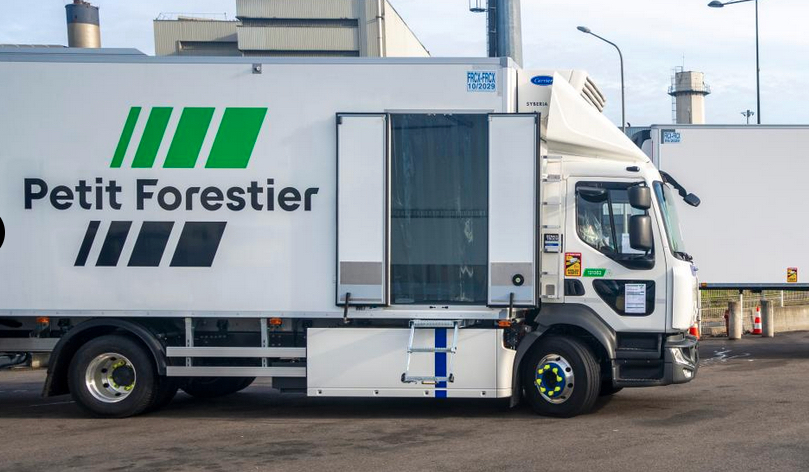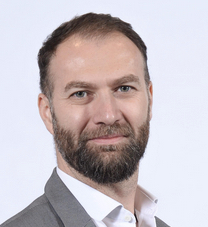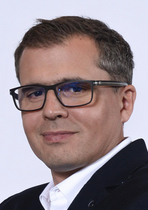Rungis, France: Petit Forestier Group plans a fundamental energy transition with two projects up to 2030, which are entirely co-dependent and intertwined: the energy transition and an outstanding customer experience.
The group has set itself a target to switch 40% of its fleet to electric power and 70% of its new vehicles by 2030 to reduce its carbon footprint by 25% per truck.
At the same time, to anticipate its customers’ requirements and provide them with the best possible support, Petit Forestier Group is putting in place a number of connected tools and services, with the aim of collecting and making the best possible use of all the telematic data.

“Making the transition from diesel to electric means radically transforming our customers’ operating ecosystems. So we can’t envisage tackling this project without putting their satisfaction at the heart of all our day-to-day efforts. We’re proud to be their trusted partner, and we’re committed to making this transformation as easy as possible for them, to ensure that they all embrace this essential change for their competitiveness – and for the planet.” said Jérôme Payonne, marketing and innovation director, Petit Forestier Group.

In France, the group’s largest market, Petit Forestier has already deployed 1,150 electric vehicles, with the aim of passing the 10,000 mark by 2030. The aim is to demonstrate to customers that energy transition is compatible with performance. To achieve this, Petit Forestier is adopting a three-pronged strategy, combining an approach based on products, services and training.
“In pursuit of these objectives, Petit Forestier has already been working on developing its range of electric vehicles for several years. These solutions include small vans such as the Ligier Pulse 4 and the Renault Kangoo E-Tech Maxi, which are particularly well-suited to express deliveries in town centres; more traditional vans such as the E-Daily and the Renault Master E-Tech; and heavy goods vehicles such as the 16-tonne Renault D16 E-Tech, which can travel up to 150km on electric power,” the company said.
These new solutions will enable Petit Forestier and all its customers to benefit from a lower-impact delivery experience:
- Zero emissions of fine combustion particles and zero emissions of nitrogen oxides when driving
- A 30-70% reduction in CO2 emissions, linked to the operation of these electric motors and the way they are recharged (depending on the source of the electricity)
- Less waste generated (no engine oil, filters, belts, etc).
“Our customers, particularly in the catering sector, have been quick to adopt our electric solutions. This sector, which is organised around short-distance delivery rounds, mainly in the morning and in urban areas, can benefit fully from an energy transition: they have time to recharge their batteries in preparation for the following day, they can be sure of being able to drive in the ZFE-m, and the catering will be guaranteed, even during periods of peak pollution,” said Sylvain Dupont, managing director, Petit Forestier.

“In addition to electric solutions, the refrigeration sector cannot make the transition without the right services. Petit Forestier has developed a whole range of connected services to meet the needs of its customers and always with a view to reducing emissions: Smart Connect, a simple and effective telematics solution to optimise fleet management, Smart Elec, the 100% mobile and flexible recharging service, and specific support for the energy transition plan,” the company said.
“At the same time, in order to provide these services as effectively as possible, Petit Forestier is committed to training its teams. More than 140 employees have been trained since 2022 in electric vehicle servicing, maintenance, breakdown recovery and towing. Petit Forestier also provides training for all its employees, on topics ranging from the challenges of the energy transition to the fundamentals of electric vehicles, including recharging facilities and customer relations. At the same time, Petit Forestier trains its sales staff in the challenges and technology of electric vehicles as part of its “Parcours Commerce” programme.”







